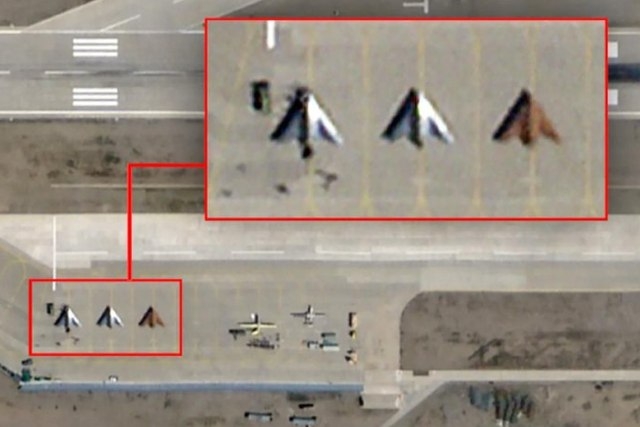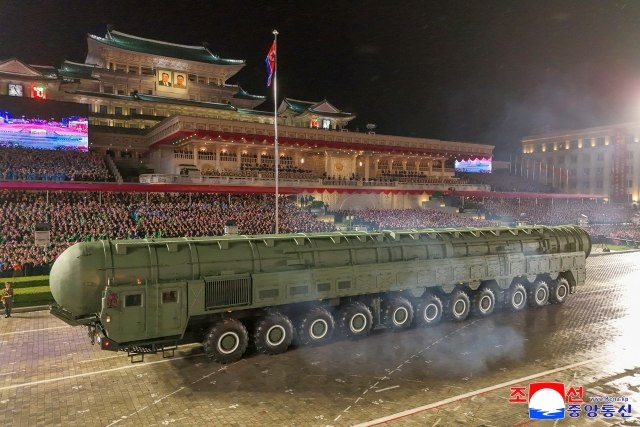Korea Aerospace Industries (KAI)
KAI is a South Korean aerospace company engaged in the design and manufacture of military and civilian aircraft, including trainers, fighters, and helicopters.
Thailand To Buy Eight T-50 Jet Trainers From South Korea For $258
Thailand cabinet has approved the purchase of eight supersonic T-50 jet trainers worth 8.8 billion baht ($258 million) from South Korea
Egypt Unveils China-Made Giant Vessel For Logistic Navigation
Egypt has unveiled its China-made multi-purpose supply vessel for specialized logistic navigation and to transport the new oil and gas from the Mediterranean Sea. The new ship, built by Guangzhou Wenchong...
S. Korean FA-50 Light Attack Aircraft Gets Depot Maintenance Capabiity
South Korea has completed a years long project to acquire the depot maintenance capability for the nation's advanced FA-50 light combat fighter jet. It will enable the military to save around...
Fincantieri's Fourth Todaro-Class Submarine Delivered To Italian Navy
Italian shipbuilder Fincantieri has delivered the new Type U212A Todaro-class submarine Romeo Romei to the Italian Navy's NAVARM naval armament unit The submarine, which was delivered at the company's shipyard in...
Chemical, Biological Weapons Resistant Membrane Developed In Russia
Russias Saratov State University chemists have developed an air and vapor permeable membrane solution that can defend military personnel from chemical and biological weapons. The project was ordered by the Fund...
Philippine Air Force’s FA-50 Jets' Strike Abu Sayyaf Camp, Kill 50 'Terrorists'
Philippine Air Forces newly acquired FA-50 fighter jets bombed a camp of the Abu Sayyaf Group (ASG) killing twenty terrorists in Sumisip, Basilan province. The fighter jets “delivered deadly payload, inflicting...
Boeing-Saab’s Second T-X Aircraft Takes Flight
Boeing and partner Saab have completed the first flight of their second production-ready T-X aircraft designed specifically for the US Air Force $16.3 billion advanced pilot training requirement
KAI Delivers Two More FA-50PH Supersonic Fighters To Philippines
Philippines has received two more FA-50PH fighter jets from South Korea. The Philippine Air Force, with the current delivery has received a total of eight fighters
Content currently not available for this country.
KAI Looks To East-South Asia, Middle East, Africa and South America For...
Helsing Acquires Blue Ocean to Advance Autonomous Underwater Vehicle Capabilities
European defence firm Helsing has announced the acquisition of Blue Ocean, an ocean technology company known for designing and operating autonomous underwater vehicles (AUVs)
Russian Yak-130M Combat Trainer Ready for Ground Testing
Russia’s United Aircraft Corporation (UAC) today announced that the first prototype of the Yak-130M combat trainer has been built at the Irkutsk Aviation Plant
1,152 Israeli Soldiers Killed Since Gaza Incident of October 7, 2023
Israel’s Ministry of Defense announced that 1,152 Israeli soldiers have been killed since the Gaza conflict began on October 7, 2023
U.K. Signs $797M Defense Deals with India for Missiles, Warship Engines
The United Kingdom and India have signed defense contracts worth £600 million ($797 million) during Prime Minister Keir Starmer’s visit to India on October 9
Frozen Russian Assets Pay for Rheinmetall’s Supply of Skyranger 35 Air Defense System to Ukraine
Rheinmetall is supplying Ukraine with further Skyranger 35 air defence systems based on the Leopard 1chassis










